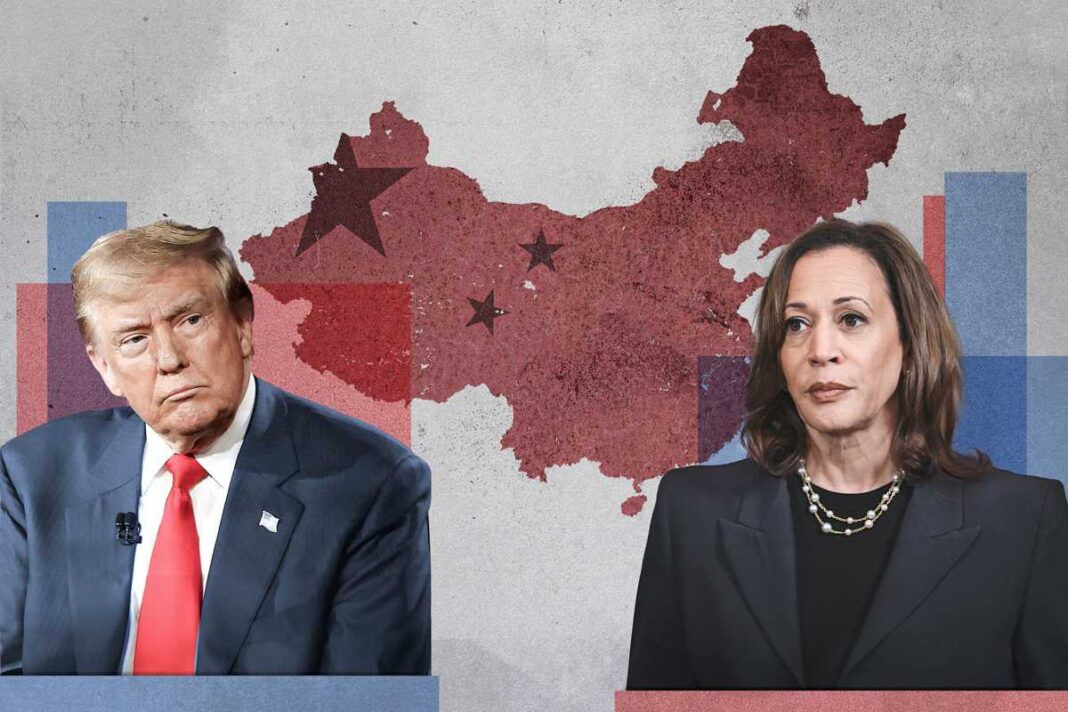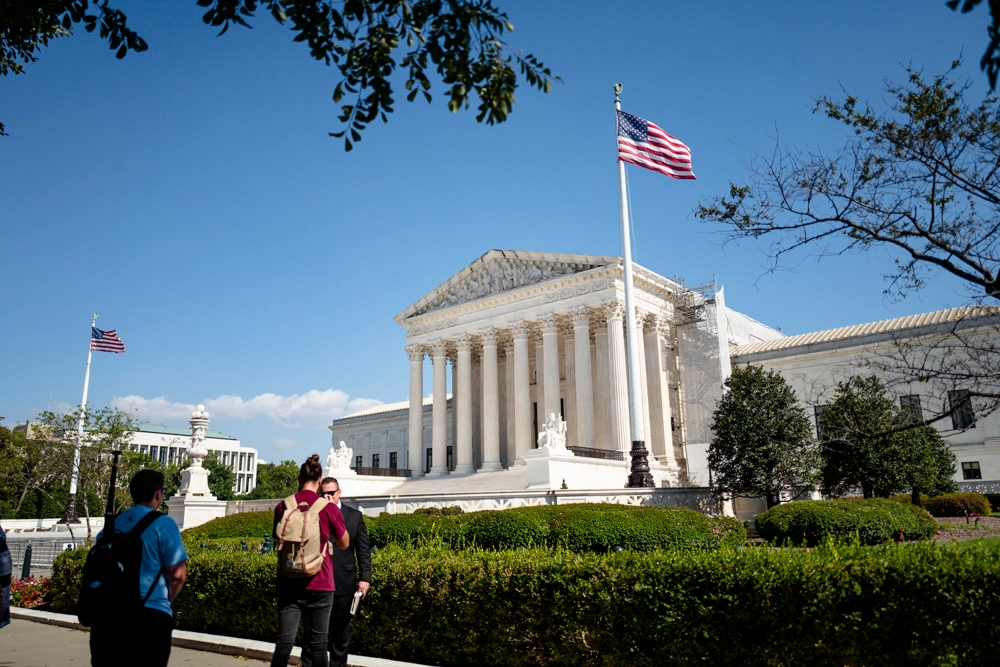Both candidates agree the Chinese Communist Party poses a threat to the United States, but they have different strategies on how to address it.
The next president will likely preside over one of the most consequential periods in the nation’s relations with communist China, an adversary that has the intention and capacity to displace the current U.S.-led world order.
Eight in 10 Americans view China unfavorably, according to a Pew Research Center report released in July.
Washington also has arrived at a consensus that the Chinese regime poses a threat as it closes the gap with the United States in the military, diplomatic, and technological domains.
The current approach to China began with former President Donald Trump. Identifying China as a “strategic competitor,” the Trump administration took a new approach to U.S.–China relations. It imposed broad tariffs on Chinese goods, controlled Chinese access to American semiconductor technology, and pivoted national security strategy from the Middle East to China and Russia.
The Biden administration continued many of these policies, and Washington’s China policy will likely continue to be hawkish. However, the two presidential candidates would likely pursue distinct approaches owing to their differing worldviews and depending on who they appoint to key positions.
Former President Donald Trump is broadly expected to resume the China policies he initiated in his first term.
Vice President Kamala Harris has indicated no sign of divergence from the Biden administration’s China policies.
Trade
The two candidates agree on controlling strategic goods and technologies, investing in innovation, reshoring supply chains, and combating Beijing’s unfair trade practices.
The aim is to ensure that “America, not China, wins the competition for the 21st century,” Harris has said repeatedly.
Last month, the Biden administration finalized its tariffs, retaining all Trump-era rates and sharply increasing them on selected critical technologies and minerals.
During a speech on the economy in Pittsburgh on Sept. 25, the vice president vowed, “I will never hesitate to take swift and strong measures when China undermines the rules of the road at the expense of our workers, our communities, and our companies.”









